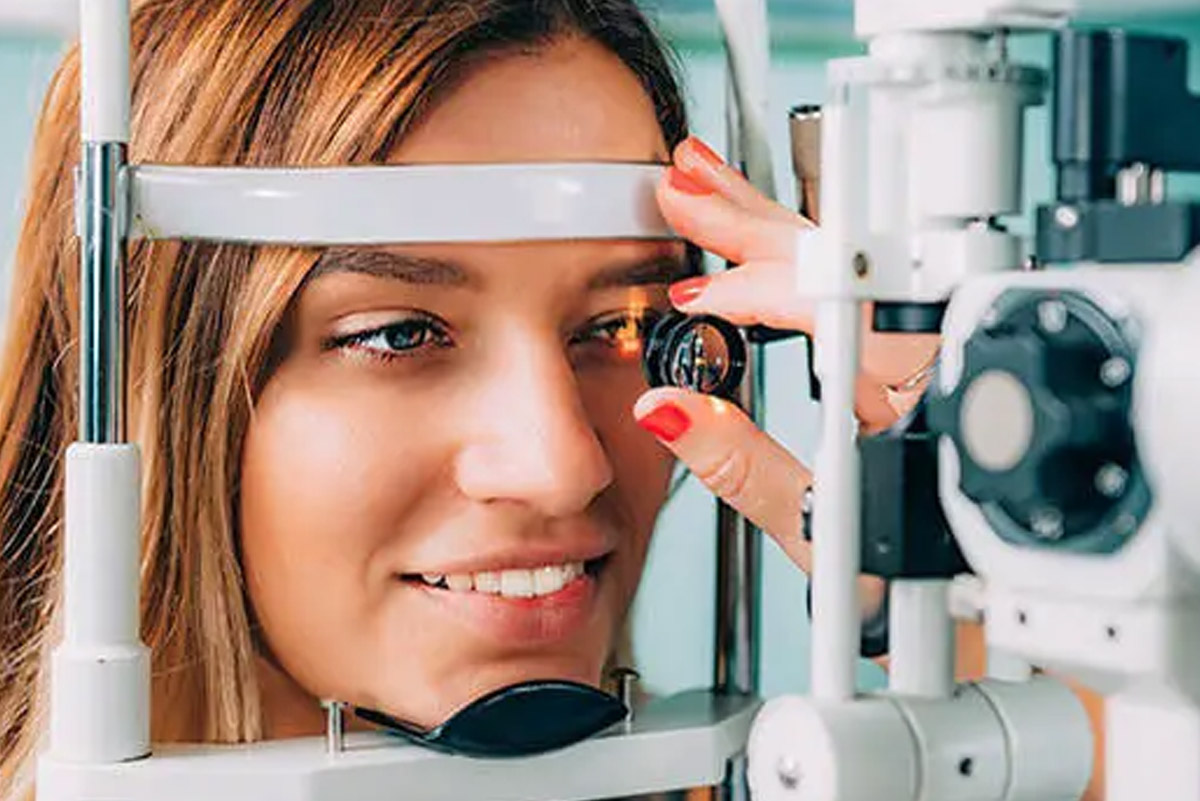Having your eyes dilated during an eye exam may seem uncomfortable, but the benefits of a dilated eye exam far outweigh the temporary blurred vision and light sensitivity that typically follow. Here’s why dilated eye exams are essential for your eye health.
What Are Dilated Eye Exams?
During a comprehensive eye exam, your optometrist will use a bright light to examine the back of your eye, known as the retina. The light causes your pupil to constrict, which can make it difficult for the doctor to see the retina. To get a better view, your eye doctor will apply special eye drops to dilate your pupils, allowing for a much more thorough examination of your eye structures, including the focusing lens, blood vessels, optic nerve, and macula.
Dilated eyes make it easier for your eye doctor to detect the following conditions:
- Cataracts
- Glaucoma
- Diabetic retinopathy
- Macular degeneration
- Retinal tumor
- Retinal detachment or tears
- Eye floaters
These conditions can develop without noticeable symptoms, often progressing until they cause significant vision loss. A dilated eye exam helps catch these issues early, ensuring more effective treatment.
The Dilation Process
To begin, your eye doctor will apply eye drops to each eye. After about 10-20 minutes, your pupils will be fully dilated. Your eyes will remain dilated for 4-6 hours, during which you may experience sensitivity to light. Because the dilated pupil lets more light in, wearing sunglasses can help alleviate discomfort.
Reading, working on a computer, and other tasks that require sharp vision may be challenging during this time, as blurred vision is common. Some patients also report a tightening sensation in their eyelids or headaches.
Why Dilated Eye Exams Are Crucial
A dilated eye exam is one of the most important steps in maintaining healthy eyes. It allows your optometrist to spot early signs of serious eye conditions, including those that don’t show symptoms until damage is done. Regular dilated eye exams are an essential part of eye care and will help you preserve your vision for the long term.
If you’re due for a comprehensive eye exam, schedule an appointment with Eyes on Group in Worcester today!
Q&A with Our Eye Doctor
At what age should one have a dilated eye exam?
Everyone should have a dilated eye exam, regardless of age. Typically, new patients will have their eyes dilated during their first exam to get a baseline of their retinal health.
Will I be able to return to work after a dilated eye exam?
This depends on how your eyes react to the dilation. If your work involves focusing on small print or intricate details, you may find it difficult to work immediately after. It’s best to schedule your appointment at the end of the day and avoid visually demanding tasks afterward.
